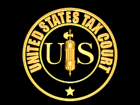Julian Jacobs

Julian Isadore Jacobs[1] (born August 13, 1937 in Maryland)[2] is a former judge of the United States Tax Court.
Jacobs received a B.A. from the University of Maryland in 1958 an LL.B. from the University of Maryland Law School in 1960, and an LL.M. in Taxation from Georgetown University Law Center in 1965. Admitted to Maryland Bar in 1960, he was an attorney for the Internal Revenue Service in Washington, D.C., from 1961 to 1965, and in Buffalo, New York, in Regional Counsel's Office, from 1965 to 1967. He entered private practice in Baltimore, Maryland, in 1967, working as an associate (1972–74) and partner (1974–84) in the law firm of Gordon, Feinblatt, Rothman, Hoffberger and Hollander. During this time, he was chairman of a commission appointed to improve the quality of the Maryland Tax Court, in 1978, and participated in various other studies and commissions convened to consider changes in Maryland tax laws. He also taught as an adjunct professor of law in the Graduate Tax Programs of the University of Baltimore School of Law (1991–93), University of San Diego School of Law (2001), and the University of Denver School of Law (2001 to present).
Jacobs was appointed by President Ronald Reagan as Judge, United States Tax Court, on March 30, 1984, for a term ending March 29, 1999. He retired on March 30, 1999, but was recalled as senior judge to perform judicial duties. On June 7, 2019, Jacobs permanently retired from judicial service.[3]
References
[edit]- ^ University of Maryland College Park (1960). Commencement Exercises. p. 21.
- ^ United States Senate Committee on Finance (1984). Nominations of Fred T. Goldberg, Jr., Julian I. Jacobs, Alfred H. Kingon, Stephanie Lee-Miller, David C. Mulford, and David B. Rohr. p. 35.
- ^ "PRESS RELEASE" (PDF). June 11, 2019. Retrieved August 6, 2019.
Chief Judge Maurice B. Foley announced today that, effective as of June 7, 2019, Senior Judge Julian I. Jacobs has fully retired and is no longer recalled for judicial service.
- Material on this page was adapted from the website of the United States Tax Court, which is published by a United States government agency, and is therefore in the public domain.
